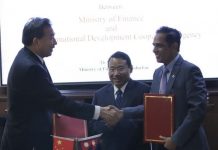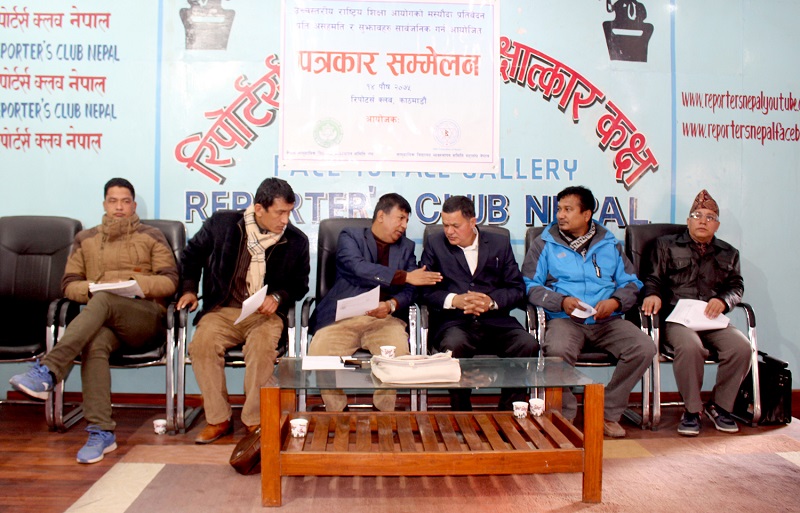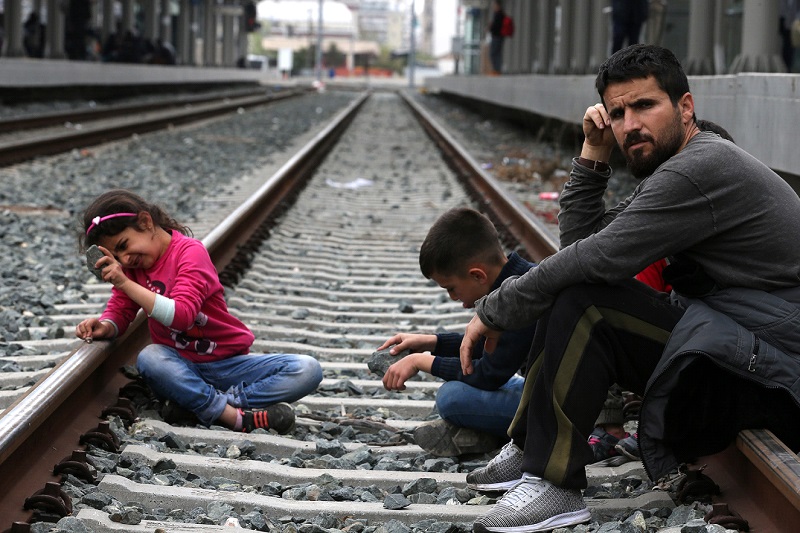DOTI, MARCH 3: In a bid to introduce sustainable and scientific methods in commercial farming of Nepal’s speciality coffee applying sustainable techniques, local potential farmers got trained in the Shikhar Municipality of Doti district in Sudurpaschim Province.
A training program was jointly organized by the European Union Trade and Investment Programme under the Ministry of Industry, Commerce and Supplies (MoICS), National Tea and Coffee Development Board, and Shikhar Municipality.
The two-day program that concluded yesterday encompassed practical learning experiences, providing farmers with practical insights into modern techniques of coffee nursery development and plantation. The training sessions were mainly aimed at introducing potential coffee farmers to basic techniques of coffee farming and processing.
The event featured the planting of 120 Arabica coffee saplings, serving as a tangible demonstration of contemporary approaches to coffee cultivation.
A total of 30 farmers including 15 women, took part in the training. The training was expected to be instrumental in promoting the scientific, sustainable, and commercial viability of coffee production at the local level forging effective coordination and collaboration with local governments and relevant stakeholders in the district.
As the nation transitions into a federal system, these collaborative endeavours are anticipated to yield substantial benefits for farmers and entrepreneurs engaged in coffee cultivation, strengthening their participation in the coffee value chain.
Bishna Bhat, a female participant, from Shikhar Municipality of Doti, conveyed her excitement regarding the prospects offered by this capacity-building initiative and outlined her desire to expand her coffee farming pursuits by judiciously applying the new-found knowledge gained from the training.
Sunita Rawal, Deputy Mayor of Shikhar Municipality underscored the imperative of collaboration among all state institutions and the private sector to realize the objective of sustainable coffee production and enhanced productivity. Rawal also emphasized the need to ensure markets for locally produced coffee to inspire farmers to expand coffee plantations through more investment.
Stating that Nepali coffee is enjoying impressive demands in domestic and international markets, Bhakta Raj Joshi, Under Secretary of the Ministry of Industry, Commerce and Supplies (MoICS), Mim Hamal, Senior Program Manager of European Union Delegation office, and Dr. Badri Prasad Bastakoti, an expert from EU-Nepal Trade and Investment Programme, and leading farmer Amar Bahadur Shahi underscored the necessity of expanding modern and sustainable farming techniques to strengthen supply capacity.
During the fiscal year 2022/23, Nepal exported 77 tons and imported 450 tons of coffee. Nepal holds the potential of coffee farming in around 1.2 million hectares of land. According to the National Tea and Coffee Development Board, coffee plantations across the country have covered over 3655 hectares, producing around 400 tons during the review year. — RSS

















